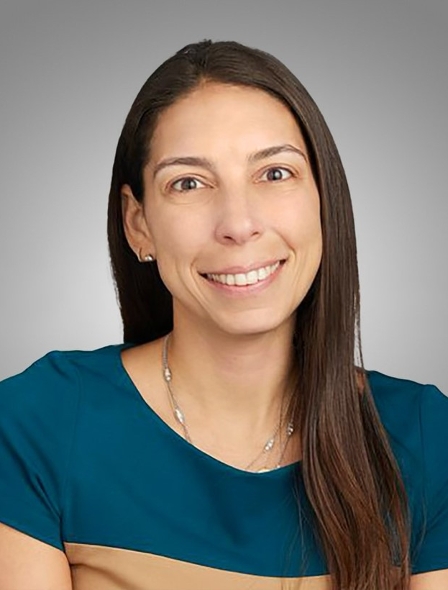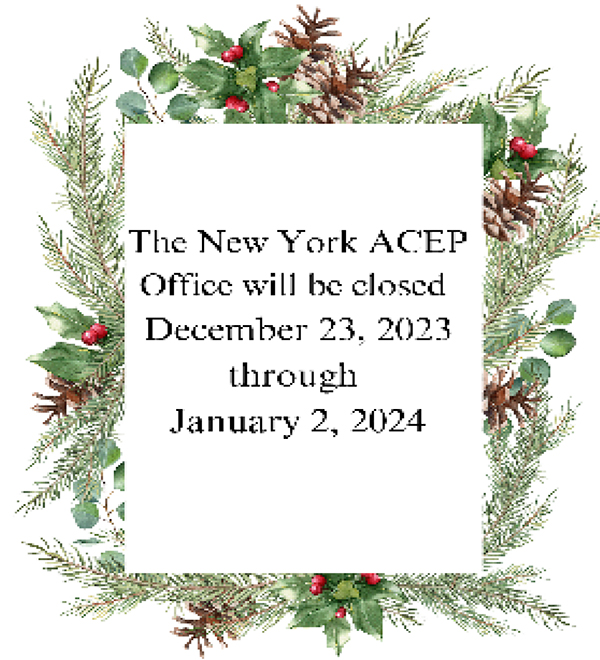I am just returning from a thrilling and eventful trip to the American College of Emergency Physicians Scientific Assembly. I have attended this meeting several times over the years, but my main purpose this year was to attend as a councillor. I applied this summer to be a councillor for New York ACEP, wanting to expand my knowledge base and challenge myself in a new arena. While frankly, I wasn’t quite sure the details of that role and responsibility. I came out of the weekend having a deeper understanding of the College’s electoral process and the issues or resolutions that emergency physicians want addressed by the College and its representatives.
New York American College of Emergency Physicians
New York Councillor: A Recap from the 2023 Council Meeting
What is the Council?
The Council is a body composed of emergency physicians who directly represent the 53 chartered chapters of the American College of Emergency Physicians, the Emergency Medicine Residents’ Association (EMRA), the Association of Academic Chairs in Emergency Medicine (AACEM), the American College of Osteopathic Emergency Physicians (ACOEP), the Council of Emergency Medicine Residency Directors (CORD), the Society for Academic Emergency Medicine (SAEM) and the College’s sections of membership. The Council meets annually, just prior to the ACEP annual meeting. The number of councillors who represent a chapter in a given year is determined by the number of ACEP members in that.
What Does the Council Do?
One aspect of being a councillor is the role of electing the Board of Directors, Council officers and the president-elect of the College. The Council shares responsibility with the Board of Directors for initiating policy and councillors shape the strategic plan of the College by providing comments on behalf of the constituencies they represent. The Council also provides a participatory environment where policies already established or under consideration by the Board of Directors can be debated.
What is a Resolution?
New policies and changes to existing policy are recommended to the Council in the form of resolutions. Resolutions usually pertain to issues affecting the practice of emergency medicine, advocacy and regulatory issues, Bylaws amendments, Council Standing Rules amendments and College Manual amendments. “Resolutions” are considered formal motions that if adopted will become official Council policy and will apply not only to the present meeting but also to future business of the Council. Resolutions must be submitted in writing by at least two members on or before 90-days prior to the annual Council meeting. This is your chance as an ACEP member to introduce a new idea or issue you believe the College should address or take a stance on. This year, New York ACEP introduced four resolutions to the Council and three were adopted.
What happens to a Resolution?
Each resolution is submitted and reviewed prior to the meeting by the councillors. During the Council weekend, there are Reference Committee hearings to gather information from all interested councillors and other College members. The duty of a Reference Committee is to hold hearings, deliberate on various resolutions and proposals and recommend a particular course of action on each to the Council. It may not be possible for each councillor to be fully informed or to have an opinion on every resolution. Therefore, the Reference Committee is designated to investigate and deliberate on the issues and then recommend a specific course of action for the Council on each resolution.
Highlights from the 2023 Council:
There were 62 total resolutions submitted to the Council this year with many adopted, some not adopted and a few referred to the Board for further review. The passion and fervor by those speaking out for or against each resolution was palpable with a diverse group of individuals with vast knowledge and perspective on topics. Resolutions not adopted by the Council for example included a “decriminalization of all illicit drugs” and “Compassionate Access to Medical Cannabis Act – “Ryan’s Law.”” Resolutions with significant debate included hot topics on gun control, on site physician staffing in emergency departments, and funding for EMS. Overall, the weekend was eye opening and thoughtprovoking with a real opportunity to not only hear about what emergency physicians find important around the country, but create a direction for the College and its future.








